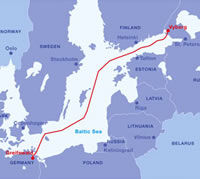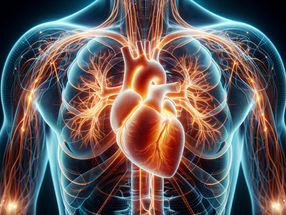BASF’s Catalysts division strengthens its manufacturing and testing capabilities in Germany
Adds new dryer for adsorbent and desiccant production at Nienburg site
BASF’s catalysts division has completed a number of capital investment projects to strengthen the company’s manufacturing and testing capabilities at its operating facilities in Nienburg and Hannover, Germany.
The company started up a third belt dryer at its Nienburg production site, enhancing capacity at one of the world’s most sophisticated production facilities for adsorbents and desiccants.
BASF invested several million euros on the new 40-meter, gas-powered belt dryer, which is made from high-alloy stainless steel and used to produce alumino-silica beads known by the trade names Sorbead® and KC-Trockenperlen®. Less than 12 months elapsed from contract award to plant commissioning, including the construction of a 50-meter production building to house the new dryer.
In addition to its dryer expansion project, BASF’s neighboring mobile emissions catalysts plant in Nienburg is expanding production of catalysts for heavy-duty trucks and commercial vehicles. “The Euro 6 emission standard requires commercial vehicles and heavy-duty trucks to comply with more stringent legal emission limits beginning in 2013, with incentives for earlier adoption,” said Gunnar Gädke, Site Manager of the emission catalysts plant in Nienburg. “Our ongoing production expansion will enable us to keep pace with increased regional demand for our high-quality emissions control solutions for heavy-duty vehicles.” In addition to emission catalysts for gasoline- and diesel-powered vehicles, the Nienburg facility coats radiators with the PremAir® catalyst that converts ozone into oxygen.
Moreover, BASF’s Catalysts division has completed the expansion of its engine testing laboratory in Hannover, adding new engine test cells to boost capacity by almost 30%. The company conducts in-house testing on the products it develops, including emission control catalysts for gasoline- and diesel-powered vehicles.
Most read news
Other news from the department manufacturing

Get the chemical industry in your inbox
By submitting this form you agree that LUMITOS AG will send you the newsletter(s) selected above by email. Your data will not be passed on to third parties. Your data will be stored and processed in accordance with our data protection regulations. LUMITOS may contact you by email for the purpose of advertising or market and opinion surveys. You can revoke your consent at any time without giving reasons to LUMITOS AG, Ernst-Augustin-Str. 2, 12489 Berlin, Germany or by e-mail at revoke@lumitos.com with effect for the future. In addition, each email contains a link to unsubscribe from the corresponding newsletter.























































